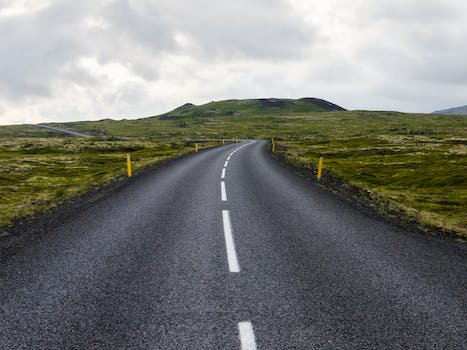Adventures have a way of igniting our spirits, awakening a sense of curiosity, and pushing us beyond our comfort zones. They offer us the opportunity to explore the thrill of the unknown, to break free from the mundane routine of everyday life and experience something extraordinary. Whether it’s embarking on a daring expedition to a remote destination or trying out a new adventurous activity, the excitement and sense of accomplishment that adventures bring can be truly transformative. In this article, we will delve into why adventures are important and how they can enrich our lives in numerous ways.
- 1. Introduction
- 2. Personal Growth and Development
- 2.1. Building confidence and self-esteem
- 2.2. Expanding comfort zones
- 2.3. Improving problem-solving skills
- 2.4. Enhancing creativity
- 2.5. Developing resilience
- 3. Physical and Mental Health
1. Introduction
Adventures are an essential part of life that allow us to explore the thrill of the unknown. They take us out of our comfort zones and push us to discover new experiences, places, and perspectives. Whether it’s embarking on a solo backpacking trip, trying a new extreme sport, or simply taking a road trip to a destination we’ve never been to before, adventures have the power to ignite a sense of excitement and curiosity within us. They provide an escape from the mundane routines of daily life and offer a chance to break free from the ordinary. In this article, we will delve into the importance of adventures and how they contribute to personal growth, self-discovery, and a deeper connection with the world around us.
1.1. Definition of adventure
Adventure can be defined as an exciting or unusual experience that involves taking risks and stepping into the unknown. It is about exploring new territories, both physically and mentally, and embracing the thrill of uncertainty. Whether it is embarking on a challenging hike, diving into the depths of the ocean, or venturing into a foreign land, adventures push us out of our comfort zones and test our limits. They provide an opportunity to break away from the monotony of everyday life and discover the hidden wonders of the world. Adventures ignite a sense of curiosity, curiosity that fuels our desire to explore and discover more about ourselves and the world around us. They enable us to experience moments of pure exhilaration, adrenaline rushing through our veins as we conquer obstacles and overcome fears. Ultimately, adventures leave us with lasting memories and valuable life lessons that shape our perception of the world. In essence, adventures are important because they allow us to fully immerse ourselves in the richness of life and embrace the thrill of the unknown.
1.2. Types of adventures
Adventures come in various forms, each offering a unique experience and a chance to explore the thrill of the unknown. Whether it’s embarking on a challenging trek through rugged mountains, diving into the depths of the ocean, or venturing into a dense rainforest, there is an adventure suited for every individual’s interests and preferences. These thrilling escapades not only provide a break from the monotony of everyday life but also offer opportunities for personal growth, self-discovery, and creating lasting memories. In this article, we will delve into different types of adventures that people can embark on, each promising an exhilarating journey full of excitement and new experiences.
1.3. Benefits of pursuing adventures
Adventures can be exhilarating experiences that push us out of our comfort zones and into the thrilling realm of the unknown. They provide us with opportunities to explore new places, try new activities, and challenge ourselves both physically and mentally. Engaging in adventures can have numerous benefits that positively impact our personal growth, mental well-being, and overall outlook on life. In this article, we will delve into the various advantages of pursuing adventures and how they contribute to our sense of fulfillment and excitement.
2. Personal Growth and Development
Personal growth and development are essential aspects of human life. They involve the continuous improvement of one’s skills, knowledge, and mindset to reach their full potential. Adventures play a significant role in fostering personal growth and development by offering experiences that challenge individuals to step out of their comfort zones and explore the thrill of the unknown.
When embarking on adventures, individuals are exposed to new environments, cultures, and perspectives. This exposure broadens their horizons and allows them to gain a deeper understanding of the world around them. It pushes them to adapt to unfamiliar situations, enhancing their problem-solving abilities and resilience.
Furthermore, adventures often require individuals to face their fears and overcome obstacles. By conquering challenges, individuals develop confidence and self-belief. They learn to trust their instincts, make decisions under pressure, and confront their limitations. These invaluable skills acquired through adventurous experiences can be applied to various aspects of life, such as relationships, career, and personal goals.
Adventures also provide opportunities for self-reflection and introspection. Stepping away from the routines and distractions of daily life allows individuals to reconnect with themselves on a deeper level. They can reflect on their values, beliefs, and aspirations, gaining clarity about what truly matters to them. This self-awareness is crucial for personal growth as it enables individuals to make conscious choices aligned with their authentic selves.
In conclusion, personal growth and development are greatly influenced by the adventures we embark upon. Through these experiences, we challenge ourselves, expand our horizons, and develop essential skills and qualities. So, embrace the thrill of the unknown and embark on adventures that will fuel your personal growth journey.
2.1. Building confidence and self-esteem
Building confidence and self-esteem are essential aspects of personal growth and development. When embarking on adventures and exploring the thrill of the unknown, individuals have the opportunity to push their boundaries and overcome challenges. This process encourages self-discovery and fosters a sense of achievement, leading to an increase in self-confidence.
By stepping outside of their comfort zones, individuals are able to face unfamiliar situations and learn to adapt. This builds resilience and the ability to navigate through uncertainty. As adventurers conquer new challenges and overcome obstacles, they develop a belief in their own capabilities, which translates into higher self-esteem.
Moreover, adventures provide a platform for individuals to confront their fears and insecurities. By confronting and conquering these fears, individuals gain a sense of empowerment and liberation. They realize that they are capable of overcoming obstacles and can handle difficult situations, boosting their self-esteem.
In addition to building confidence and self-esteem, adventures also contribute to personal growth and development by fostering a sense of self-awareness. When exploring new environments and engaging in unfamiliar activities, individuals gain a deeper understanding of themselves. They discover their strengths, weaknesses, and what truly motivates them.
Furthermore, adventures often involve interacting with diverse cultures and environments. This exposure broadens individuals’ perspectives and helps them develop empathy and understanding towards others. It also encourages open-mindedness and adaptability, valuable traits for personal growth.
In conclusion, engaging in adventures and embracing the thrill of the unknown can greatly contribute to personal growth and development. By building confidence and self-esteem, fostering resilience, confronting fears, and promoting self-awareness, individuals can unlock their full potential and experience transformative changes in their lives.
2.2. Expanding comfort zones
Expanding comfort zones is crucial for personal growth and development. It is through stepping out of our comfort zones that we are able to explore new experiences, discover our true potential, and overcome our fears. Adventures play a significant role in expanding comfort zones as they push us to navigate unfamiliar territories, face challenges, and embrace the thrill of the unknown. By embarking on adventures, we are compelled to adapt to new situations, think outside the box, and develop resilience. This process of pushing our boundaries not only enhances our self-confidence and self-esteem but also fosters personal growth by expanding our perspective and understanding of the world. It is through these exhilarating experiences that we learn to embrace change, embrace uncertainty, and embrace the excitement that comes with exploring the unknown.
2.3. Improving problem-solving skills
Improving problem-solving skills is an essential aspect of personal growth and development. It enables individuals to tackle challenges and overcome obstacles with efficiency and confidence. By engaging in adventurous activities, one can significantly enhance their problem-solving abilities. The thrill of the unknown that comes with adventures requires individuals to think on their feet, adapt quickly, and find creative solutions to unexpected situations. This constant need for problem-solving during adventures helps individuals develop a range of valuable skills, including critical thinking, decision-making, and resourcefulness. Moreover, as individuals successfully navigate through various adventures, they gain a sense of accomplishment and self-assurance, which further fuels their personal growth and development.
2.4. Enhancing creativity
Enhancing creativity is a crucial aspect of personal growth and development. It allows individuals to tap into their imagination, think outside the box, and discover new possibilities. When it comes to the thrilling experience of embarking on adventures and exploring the unknown, creativity plays a significant role. It enables individuals to adapt to unexpected situations, problem-solve effectively, and find innovative solutions. By embracing the unknown, individuals can break free from routine and mundane patterns, opening doors to endless opportunities for personal growth and self-discovery. Through adventures, people are challenged to think creatively, push their limits, and step out of their comfort zones, leading to enhanced creativity and a deeper understanding of their own capabilities. So, if you want to foster personal growth and development, embracing adventurous experiences and the thrill of the unknown is essential.
2.5. Developing resilience
Developing resilience is a crucial aspect of personal growth and development. It is through facing challenges and stepping out of our comfort zones that we can truly discover our inner strengths and capabilities. Adventures play a significant role in this process, as they often involve exploring the thrill of the unknown.
When we embark on adventures, we are exposed to new experiences, unfamiliar environments, and unexpected situations. These encounters push us to adapt, think on our feet, and find creative solutions. As a result, we become more resilient individuals, able to navigate through life’s uncertainties with confidence and ease.
Adventures also provide opportunities for personal growth. They encourage us to confront our fears, break free from limitations, and discover new passions. Whether it’s hiking in a remote mountain range, traveling to a foreign country, or trying out an extreme sport, adventures challenge us to push our boundaries and expand our comfort zones.
Moreover, the thrill of the unknown that accompanies adventures fosters personal development by promoting self-discovery and self-awareness. As we venture into uncharted territory, we learn more about ourselves – our strengths, weaknesses, and values. This knowledge allows us to grow as individuals, as we gain a deeper understanding of who we are and what truly matters to us.
In conclusion, developing resilience is a key aspect of personal growth and development. Adventures provide the perfect platform for cultivating resilience, as they expose us to the unknown and push us to overcome challenges. By embracing the thrill of the unknown, we can embark on a journey of self-discovery and unlock our full potential.
3. Physical and Mental Health
Adventures play a pivotal role in promoting both physical and mental health. Engaging in thrilling activities such as hiking, rock climbing, or skydiving not only provides a rush of adrenaline but also helps improve physical fitness. These activities require strength, endurance, and flexibility, thus enhancing overall physical wellbeing. Additionally, venturing into the unknown stimulates the mind, boosts creativity, and reduces stress levels. The sense of accomplishment and the feeling of conquering fears during an adventure can significantly improve mental health and self-confidence. By stepping out of our comfort zones and embracing new challenges, we can enhance both our physical and mental well-being.
3.1. Boosting physical fitness
Boosting physical fitness is a crucial aspect of maintaining good overall health, both physically and mentally. Engaging in adventures can serve as an excellent way to enhance physical fitness. Adventure activities such as hiking, rock climbing, and kayaking require physical strength, endurance, and flexibility. These activities challenge the body, leading to increased cardiovascular fitness, improved muscle tone, and enhanced agility. Regular participation in adventurous pursuits can help individuals maintain a healthy weight, reduce the risk of chronic diseases, and boost overall physical well-being. Moreover, the adrenaline rush and excitement associated with adventures can have a positive impact on mental health, promoting feelings of happiness, exhilaration, and a sense of accomplishment. By engaging in thrilling adventures, individuals can break free from their comfort zones, overcome fears, and develop resilience. This, in turn, can lead to improved mental clarity, reduced stress levels, and increased self-confidence. Overall, combining physical fitness with the excitement of adventures can contribute to a holistic approach to health and well-being.
3.2. Reducing stress and anxiety
Reducing stress and anxiety is crucial for maintaining both physical and mental health. Engaging in adventurous activities can be an effective way to achieve this. When we participate in thrilling and unknown experiences, our focus shifts from everyday worries and stressors to the present moment. This redirection of attention allows us to escape from the pressures of daily life and immerse ourselves in the excitement and wonder of the unknown.
Adventures provide a much-needed break from the monotony of routine and offer a sense of freedom and liberation. The adrenaline rush and sense of accomplishment that comes from conquering new challenges can boost our self-confidence and self-esteem. Moreover, adventure activities often involve physical exertion, which releases endorphins and promotes a sense of well-being.
By engaging in adventures, we also improve our problem-solving skills and develop resilience. Facing unfamiliar situations and overcoming obstacles require us to think creatively and adapt to changing circumstances. These experiences not only enhance our mental agility but also equip us with valuable life skills that can be applied in various aspects of our lives.
Furthermore, adventures allow us to connect with nature and appreciate its beauty. Spending time in natural environments has been proven to reduce stress levels and improve mental well-being. The tranquility and serenity of nature have a calming effect on our minds, helping to alleviate anxiety and promote relaxation.
In conclusion, the importance of adventures in reducing stress and anxiety cannot be overstated. The thrill of the unknown and the challenges faced during adventurous activities provide a much-needed escape from the pressures of daily life. Engaging in such activities not only promotes physical fitness but also enhances mental well-being, problem-solving abilities, and resilience. So, embrace the thrill of the unknown and embark on exciting adventures to improve your overall health and happiness.
3.3. Increasing happiness and well-being
Engaging in adventurous activities not only provides excitement and thrills, but it also plays a crucial role in increasing happiness and well-being. Both physical and mental health can greatly benefit from the experiences and challenges encountered during adventures.
On a physical level, adventure activities often involve physical exertion and movement. Whether it’s hiking up a mountain, rock climbing, or participating in water sports, these activities require the body to engage in different forms of exercise. Regular physical activity has been proven to have numerous health benefits, such as improving cardiovascular health, boosting immune function, and enhancing overall fitness.
Moreover, adventurous pursuits can have a positive impact on mental health. Stepping out of one’s comfort zone and taking on new challenges can build confidence and self-esteem. Overcoming obstacles during adventures can provide a sense of achievement and personal growth. It allows individuals to push their limits, break free from routine, and embrace the unknown, leading to a greater sense of fulfillment and satisfaction.
Additionally, being immersed in nature during adventures can have a calming and rejuvenating effect on the mind. Disconnecting from the digital world and spending time in natural surroundings can reduce stress levels and promote mental well-being. The serenity and beauty of nature can help clear the mind, improve focus, and enhance overall mental clarity.
In conclusion, adventures are not only about seeking thrill and excitement; they also contribute significantly to happiness and well-being. Through physical exertion, mental challenges, and connection with nature, individuals can experience personal growth, improved physical health, and enhanced mental well-being.
3.4. Stimulating cognitive abilities
Engaging in adventurous activities not only provides an adrenaline rush but also stimulates cognitive abilities. When we embark on an adventure, we are exposed to new and unfamiliar situations that challenge our problem-solving skills and decision-making abilities. This constant mental stimulation helps to improve cognitive function, such as memory, focus, and attention span.
Additionally, adventures often involve physical activities that contribute to overall physical and mental well-being. Whether it’s hiking, rock climbing, or water sports, these activities require physical exertion and help improve cardiovascular health, strength, and endurance. Engaging in regular physical activities also releases endorphins, which are natural mood boosters that reduce stress and anxiety.
Furthermore, the thrill of the unknown that adventures offer can have a positive impact on mental health. Stepping out of our comfort zones and embracing new experiences can boost self-confidence and self-esteem. Overcoming challenges during adventures can also foster resilience and improve our ability to cope with stress in everyday life.
In conclusion, adventures are important for both physical and mental health. They provide opportunities for cognitive stimulation, physical fitness, and personal growth. So, go ahead and embrace the thrill of the unknown!
3.5. Improving concentration and focus
Improving concentration and focus is crucial for both physical and mental health. When we are able to concentrate and focus effectively, we can perform better in our daily activities and achieve our goals more efficiently. Lack of concentration and focus can lead to decreased productivity, increased stress levels, and overall dissatisfaction. Therefore, it is important to adopt strategies that can help enhance our concentration and focus.
From a physical health perspective, regular exercise and a healthy diet play a significant role in improving concentration and focus. Engaging in physical activities increases blood flow to the brain, providing it with the necessary oxygen and nutrients for optimal functioning. Exercise also releases endorphins, which are known to improve mood and cognitive abilities.
Getting enough sleep is equally important for maintaining good concentration and focus. Lack of sleep can impair cognitive function, attention span, and memory. It is recommended to get 7-9 hours of quality sleep each night to ensure proper brain functioning.
In addition to physical health, mental well-being also contributes to concentration and focus. Engaging in activities that reduce stress levels, such as meditation or mindfulness exercises, can help calm the mind and improve focus. Taking regular breaks during work or study sessions is also beneficial, as it allows the brain to rest and recharge.
Creating a conducive environment is another aspect to consider. Having a clean and organized workspace can help reduce distractions and promote better concentration. Minimizing external stimuli, such as noise or visual clutter, can aid in maintaining focus.
Lastly, incorporating techniques like time management, setting goals, and prioritizing tasks can greatly enhance concentration and focus. Breaking down tasks into smaller, manageable chunks and allocating specific time slots for each task can improve productivity and prevent mental fatigue.
In conclusion, improving concentration and focus is essential for both physical and mental health. By adopting strategies like regular exercise, healthy sleep habits, stress reduction techniques, creating a conducive environment, and implementing effective time management, we can enhance our ability to concentrate and focus, leading to overall improved well-being.
Conclusion
In conclusion, adventures are incredibly important as they allow us to explore the thrill of the unknown. They provide opportunities for personal growth, expanding our horizons, and stepping out of our comfort zones. By embracing adventures, we can discover new perspectives, overcome challenges, and create lasting memories. So, let’s embrace the excitement and embark on thrilling adventures that enrich our lives.





